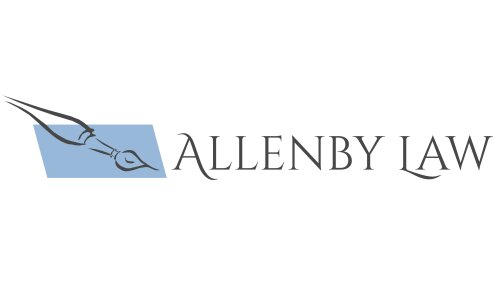Best Water Law Lawyers in Fort McMurray
Share your needs with us, get contacted by law firms.
Free. Takes 2 min.
List of the best lawyers in Fort McMurray, Canada
About Water Law in Fort McMurray, Canada
Water Law in Fort McMurray, Alberta, covers all legal issues related to the use, management, ownership, and protection of water resources. This branch of law addresses the allocation of water rights, permits for water use, regulation of pollution, protection of waterways, and resolution of disputes over water access or contamination. As Fort McMurray is located near significant water bodies and is a hub for industrial activities, water law often intersects with environmental protection, land use regulations, and indigenous rights. The primary goal is to balance economic growth with the conservation and sustainable management of water resources for current and future generations.
Why You May Need a Lawyer
There are various circumstances in which individuals, businesses, or organizations in Fort McMurray might require the assistance of a lawyer specializing in water law:
- Obtaining water licenses or permits for industrial, commercial, or agricultural purposes
- Addressing water contamination or pollution issues, whether you are the affected party or the accused
- Resolving disputes between property owners regarding water boundaries or watercourse alterations
- Understanding your rights and obligations related to water use on private, public, or indigenous lands
- Navigating regulatory compliance for companies in the oil sands or related industries
- Interacting with government agencies responsible for water management and reporting suspected violations
- Assistance with prosecution or defense in enforcement actions or administrative proceedings
- Ensuring compliance with drainage, flooding, and water management regulations in land development projects
Local Laws Overview
The regulation of water in Fort McMurray falls under federal, provincial, municipal, and indigenous jurisdictions. The key aspects are as follows:
- Alberta Water Act: Governs the allocation and use of water, including the requirement for licenses for most types of water withdrawal and alterations. Sets rules for protecting aquatic ecosystems and managing water emergencies.
- Environmental Protection and Enhancement Act (EPEA): Deals with water pollution, requiring permits for wastewater discharge and providing penalties for violations.
- Fisheries Act (Federal): Protects fish habitats and regulates substances deposited into watercourses.
- Municipal Bylaws: The Regional Municipality of Wood Buffalo administers additional rules on stormwater, drainage, and land development near water bodies.
- Indigenous Water Rights: Some water resources are subject to treaty or land claim rights, especially where First Nations or Métis lands and interests intersect with water.
- Oil Sands Operations: Particular attention is given to water use, diversion, and reclamation in oil sands areas near Fort McMurray, with oversight from both provincial and federal agencies.
Frequently Asked Questions
What types of water uses require a license in Fort McMurray?
Most uses of surface or groundwater, such as industrial processing, irrigation, and large-scale withdrawals, require a license from Alberta Environment and Protected Areas. Domestic household use (such as for drinking, cooking, or washing) is generally exempt, but larger undertakings normally are not.
How can I report water pollution in my area?
You should report suspected water contamination or illegal discharge to Alberta Environment’s Environmental Response Line or to the Regional Municipality of Wood Buffalo. They have protocols to investigate and respond to such incidents.
Am I allowed to alter or redirect a watercourse on my property?
Altering, redirecting, or filling a natural watercourse usually requires a permit and must comply with the Alberta Water Act and municipal bylaws. Unauthorized changes can result in fines or orders to restore the area.
Who enforces water law regulations in Fort McMurray?
Alberta Environment and Protected Areas is the main regulatory body. The federal government may be involved for issues affecting fisheries. The municipality can also enforce bylaws related to water management.
What can I do if someone is diverting water from my property?
You can contact legal counsel and report the issue to Alberta Environment. Documentation is important for proving any harm or unlawful diversion, and a lawyer can help protect your property rights.
Do oil sands companies need special permissions for water use?
Yes, oil sands operations must obtain extensive provincial and sometimes federal permits for water use, treatment, and discharge. Oversight is stricter due to the environmental impact and scale of the industry.
Are there specific protections for indigenous communities regarding water law?
Indigenous rights to water may be protected under treaties, land claim agreements, and constitutional law. Decisions affecting these rights often require consultation with indigenous communities.
What penalties exist for illegal water use or pollution?
Penalties range from fines and administrative orders to criminal prosecution, depending on the severity and whether the offense is under provincial or federal law.
How do I get a water license for my business?
You must apply to Alberta Environment, outlining your proposed use, quantities needed, and potential environmental impact. The process may include an assessment of how your request affects other users and the environment.
Can I use water from a nearby river for irrigation?
Generally, yes, but only with an appropriate license from Alberta Environment for non-domestic use. Unauthorized withdrawal is an offense.
Additional Resources
Several organizations and governmental bodies offer further information and support on water law topics relevant to Fort McMurray:
- Alberta Environment and Protected Areas: Responsible for water policy, licensing, and enforcement.
- Regional Municipality of Wood Buffalo: Manages water bylaws, stormwater systems, and local permits.
- Fisheries and Oceans Canada: Oversees federal water and fish habitat protections.
- Indigenous and Northern Affairs Canada: Information for indigenous water rights and consultation.
- Environmental Law Centre (Alberta): A non-profit providing public legal information and resources on water and environmental law.
- Local law firms and practitioners: Many offer guidance or initial consultations on water law issues in the region.
Next Steps
If you need legal assistance related to water law in Fort McMurray, consider the following steps:
- Gather any relevant documents, such as water licenses, permits, correspondence with authorities, and evidence of the issue at hand
- Consult with a lawyer specializing in environmental or water law to discuss your situation and obtain an assessment of your rights and options
- Contact the appropriate government body if immediate intervention or enforcement may be required
- Stay informed about your responsibilities and any regulatory changes that could affect your case
- If the matter involves neighbors, indigenous lands, or multiple parties, seek early legal guidance to avoid escalating disputes
Lawzana helps you find the best lawyers and law firms in Fort McMurray through a curated and pre-screened list of qualified legal professionals. Our platform offers rankings and detailed profiles of attorneys and law firms, allowing you to compare based on practice areas, including Water Law, experience, and client feedback.
Each profile includes a description of the firm's areas of practice, client reviews, team members and partners, year of establishment, spoken languages, office locations, contact information, social media presence, and any published articles or resources. Most firms on our platform speak English and are experienced in both local and international legal matters.
Get a quote from top-rated law firms in Fort McMurray, Canada — quickly, securely, and without unnecessary hassle.
Disclaimer:
The information provided on this page is for general informational purposes only and does not constitute legal advice. While we strive to ensure the accuracy and relevance of the content, legal information may change over time, and interpretations of the law can vary. You should always consult with a qualified legal professional for advice specific to your situation.
We disclaim all liability for actions taken or not taken based on the content of this page. If you believe any information is incorrect or outdated, please contact us, and we will review and update it where appropriate.









